Banpu joins hands with Mahidol organizing the “Power Green Camp 13”
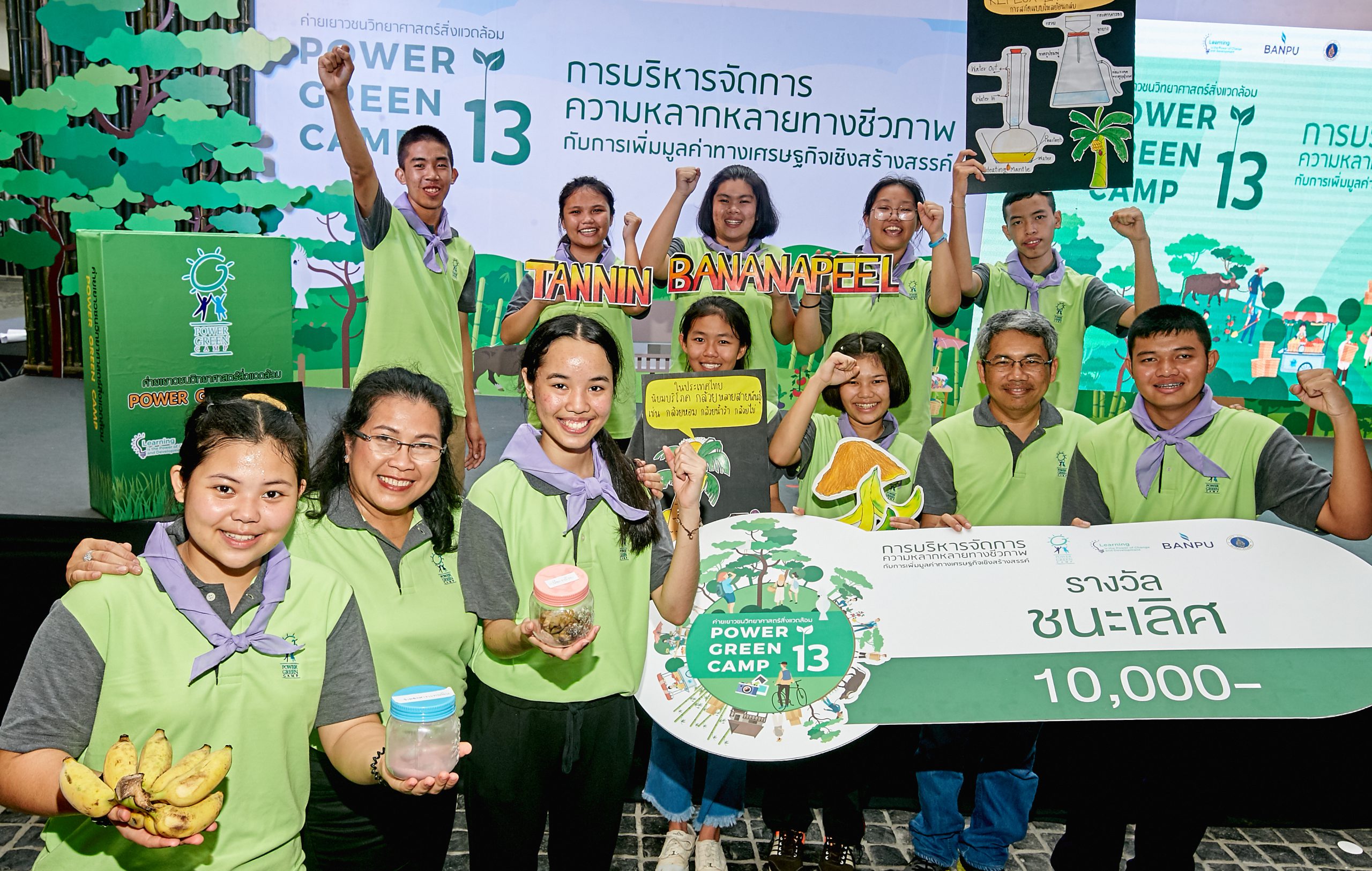
Integrating knowledge of envi-science with arts, and creating a sustainable balance between utilizing natural resources and preserving biodiversity
Banpu Public Company Limited, a leading integrated energy solutions company in
Asia-Pacific, collaborated with the Faculty of Environment and Resource Studies, Mahidol University in hosting the Power Green Camp 13 on the theme “Managing biodiversity and creatively increasing its economic value”. Seventy students majoring in Science in Grades 10 and 11 from all over Thailand were selected from a total of 389 applicants to participate in the camp, which was held from 18th – 25th October 2018 at the Faculty of Environment and Resource Studies, Mahidol University. This year, not only did students have the opportunity to learn from activities based on the camp’s concept of Envi-Science: Learning Through Actions, but they also had a chance to experience new forms of study that combined environmental science with creativity and artistic skills. Students also learned from experienced entrepreneurs who generate income from the proper use of biodiversity and studied the community model for increasing value of local products without affecting preservation. At the end, students combined their knowledge and skills to create an environmental science group project that focused on this year’s theme, managing biodiversity and creatively increasing its economic value.
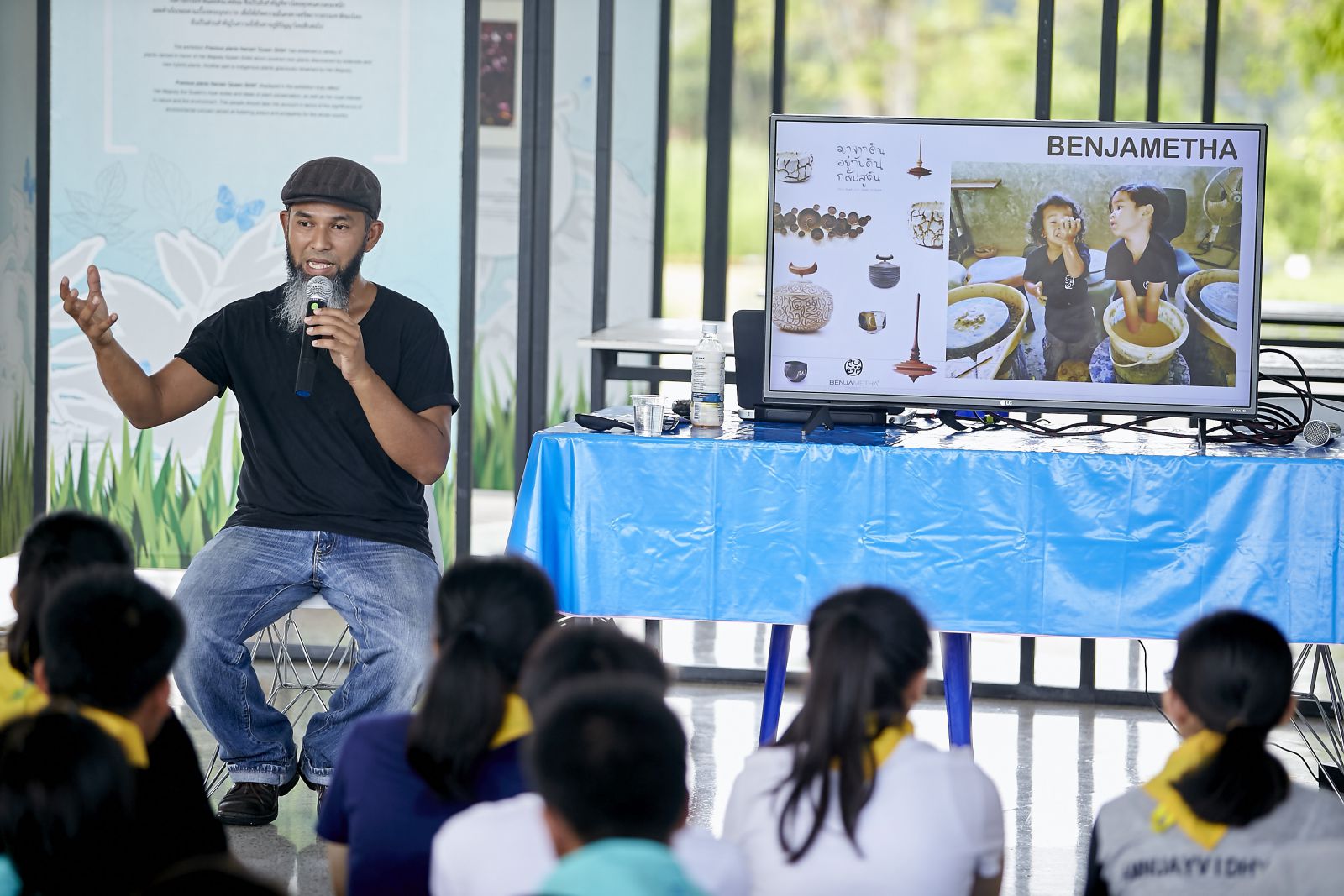
Mr. Emsophian Benjametha, the owner of Benjametha Ceramic, explains how to create products for the community.
The 70 students from all over the country had the opportunity to participate in various activities during Power Green Camp 13. These included: an inspiring approach to creating products for the community by Mr. Emsophian Benjametha, owner of Benjametha Ceramic; the Scientific Photography Workshop: Plant and Animal Biodiversity by Mr. Dome Pratumtong, a naturalist, writer and photographer who focuses on nature and the environment; Scientific Illustration and Nature Drawing Workshop by Mr. Utain Pummarin, a nature educator; and a special discussion on the topic “Art & Nature, Giving Creative Value to Biodiversity”
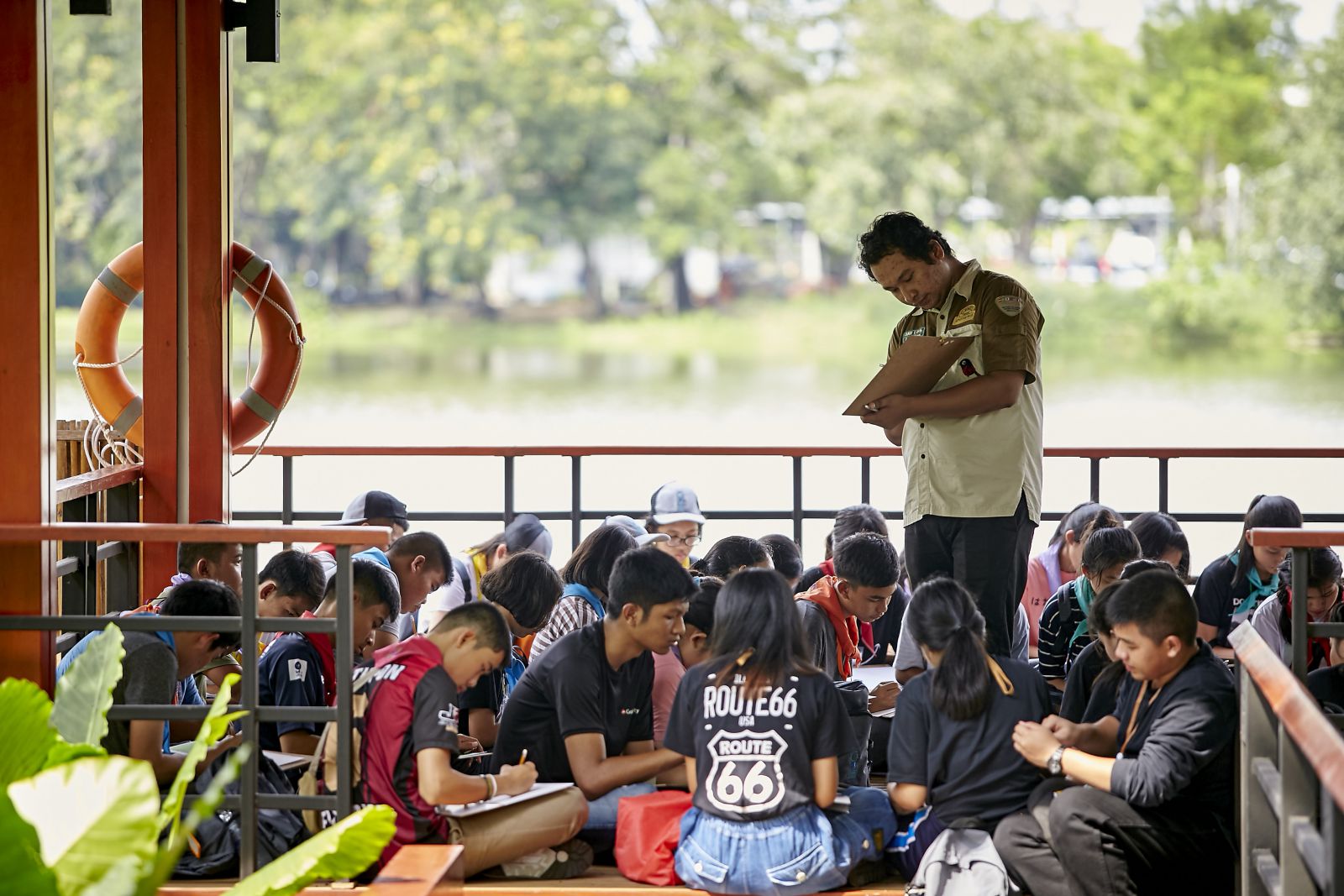
Mr. Utain Pummarin, a nature educator, guides the students during Scientific Illustration and Nature drawing workshop.
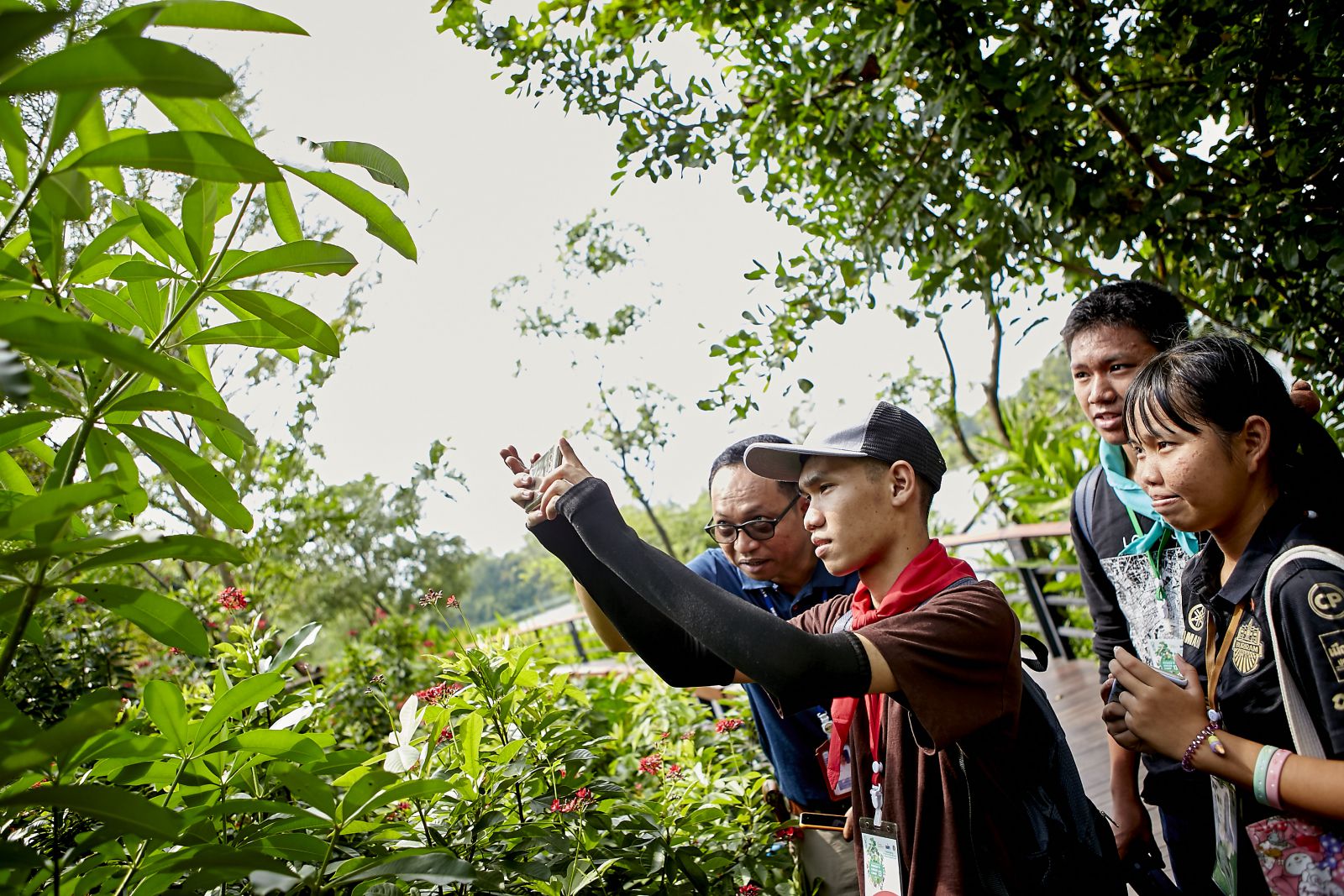
Mr. Dome Pratumtong, a naturalist, writer and photographer, leads the scientific photography workshop: Plant and animal biodiversity.
Mrs. Udomlux Olarn, Head of Corporate Affairs, Banpu Public Company Limited said: “Banpu firmly believes that learning is the power of change and development. For more than a decade, the Power Green Camp has focused on encouraging the young generation to become an important force in driving their own communities and society forward by applying their knowledge and experiences gained from the camp to daily life to cope with a changing world. This year, not only have we focused on biodiversity, but we have also encouraged students to develop their artistic and creative skills while learning about the importance of biodiversity, preserving it and increasing its value. We hope that students will be inspired and able to apply the knowledge and experience gained from the camp in creating innovations that will be beneficial to community and country, and maximize the use of biodiversity to increase economic growth and sustainably manage natural resources.”
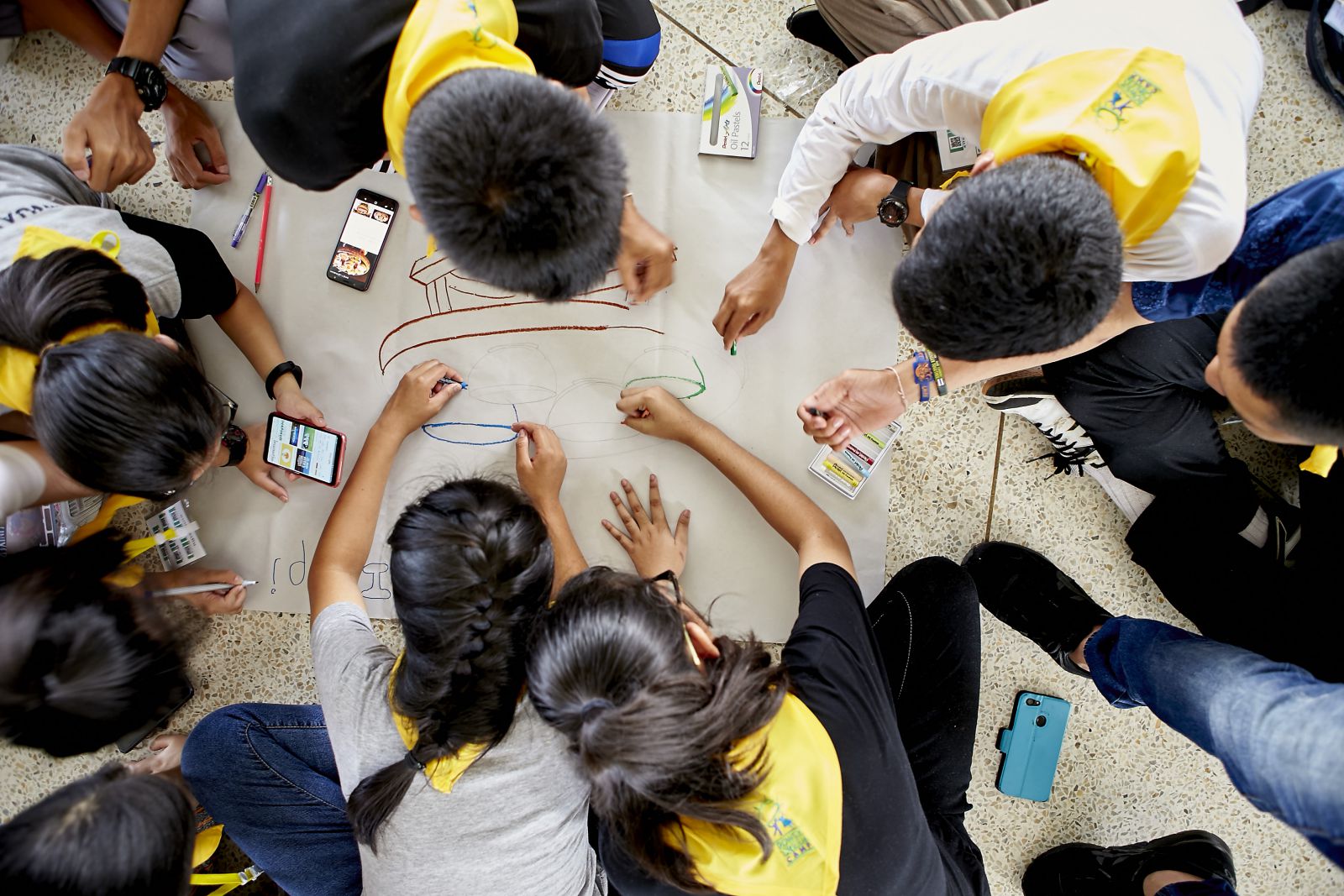
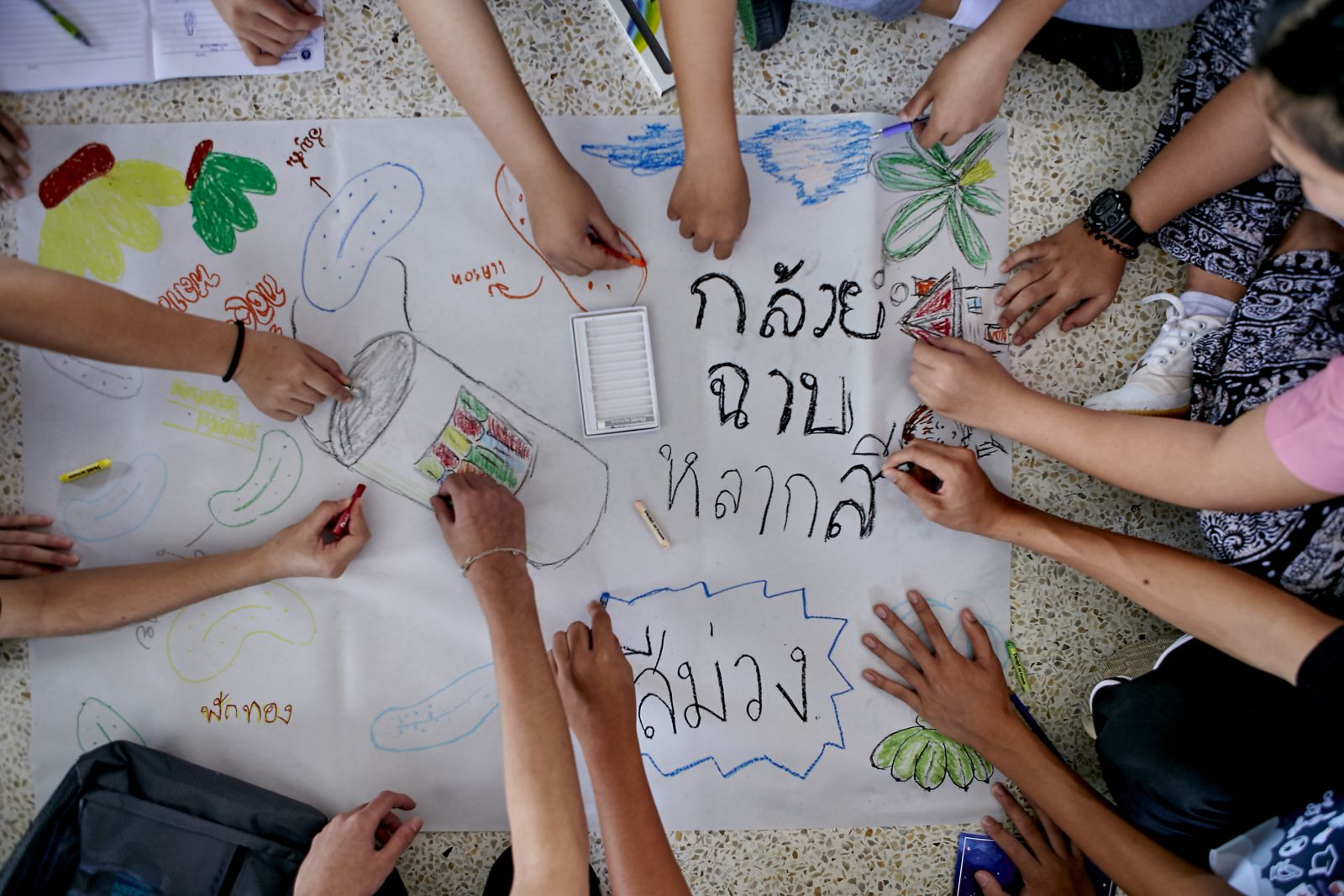
Students incorporate their inspirations for creating activities in the community and group project.
For this year’s special activities, students had a chance to learn from community models in Nakhon Pathom and Kanchanaburi, two showcases that balance the use of biodiversity for economic gain with preservation of the ecosystem. In Nakhon Pathom, students learnt how to promote ecosystem usage for commercial purposes by studying the “Sampran Model”, which develops business sustainably. Students also visited the organic products market and learned about the local farmers’ way of life at the Chao Suan Khlong Jinda Learning Center. Moving on to Kanchanaburi, they spent time in the community forest in Lum Sum sub-district, learning how to transform bamboo into products that increase its creative economic value. This is one of the community models that successfully merges biodiversity preservation with increasing the value of nature within its own community.
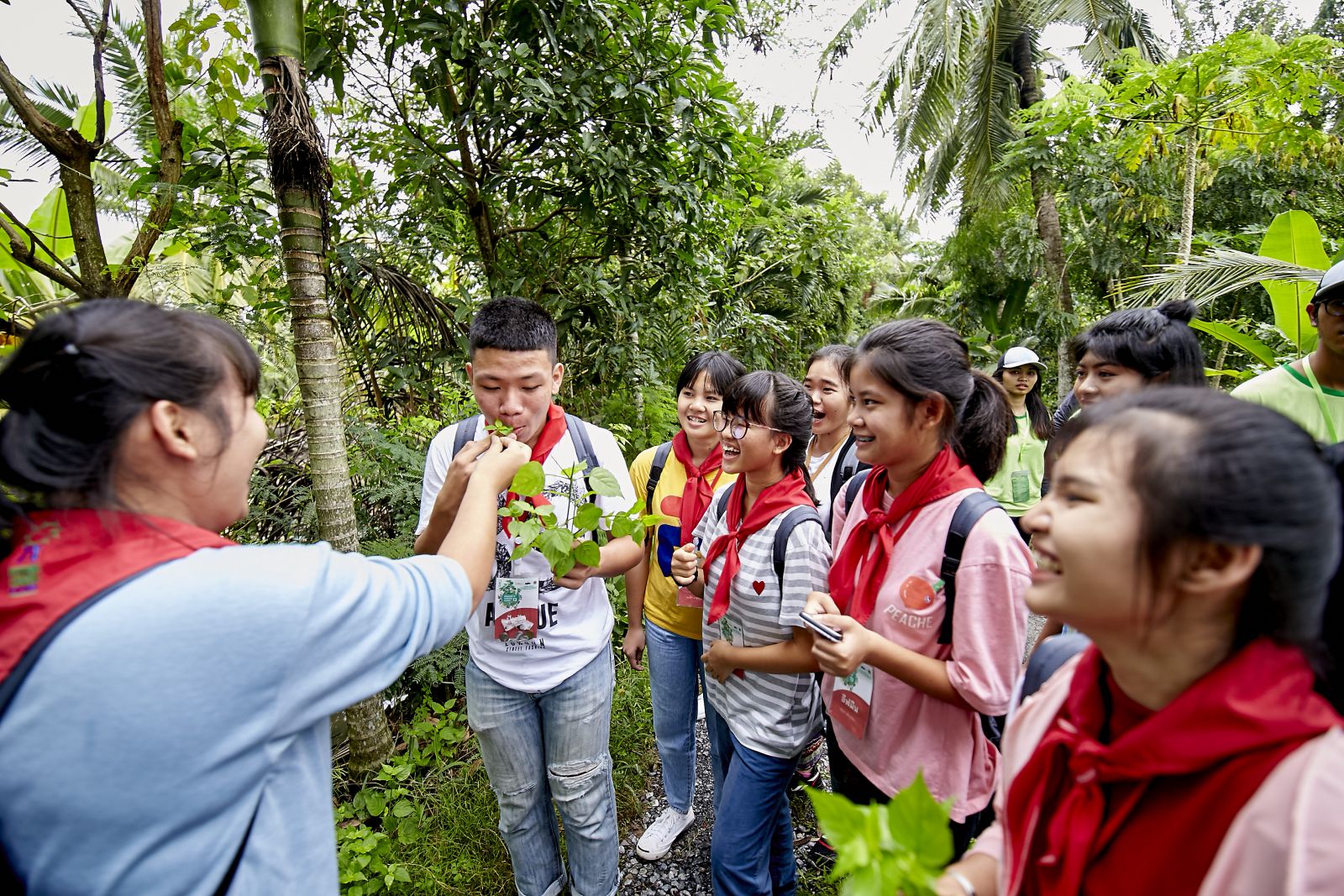
Students learn about the farmers’ way of life at Chao Suan Khlong Jinda School.
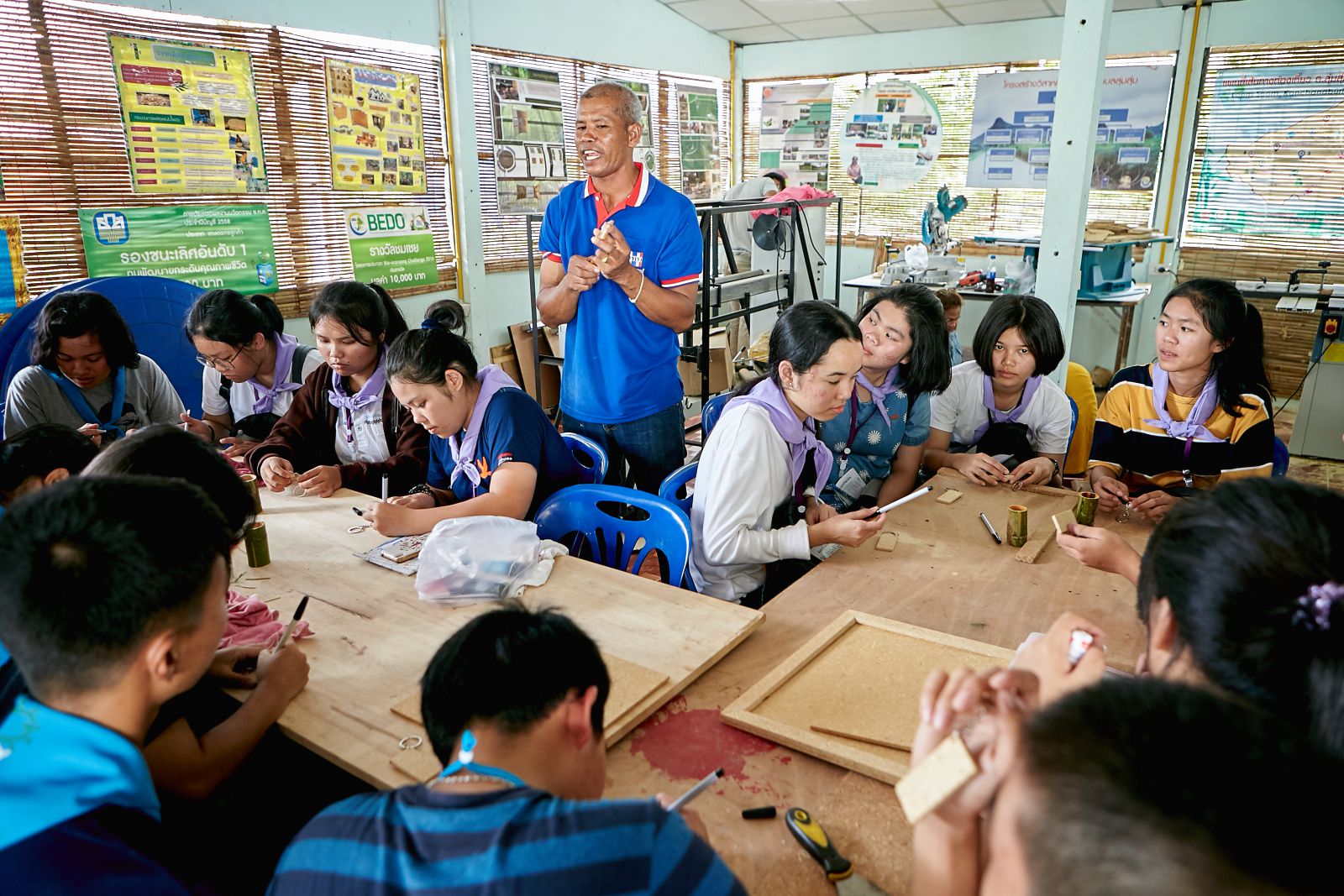
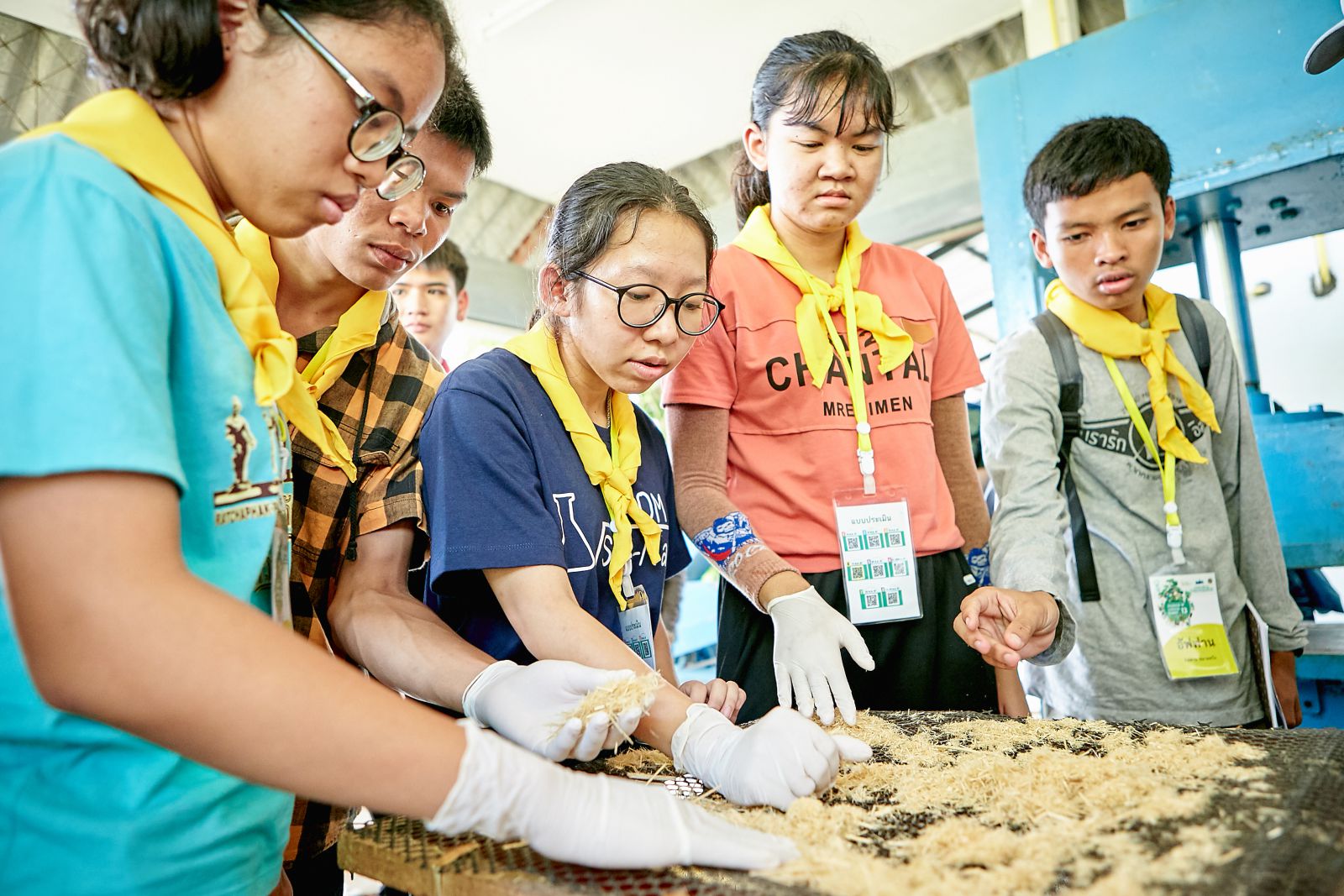
Students participate in a bamboo transformation activity.
Mr. Tiwa Soodprasert, Assistant Village Headman of Lum Sum sub-district said: “People in our community rely on the forest for their lives. We maximize the use of our bamboo resources by transforming it into products that generate additional income. In the past, bamboo scraps left over from production were burnt, but the community came up with a way to maximize the use of resources by creating products from bamboo scraps, integrating local wisdom to make such items as houseware and home decor accessories and leading to increased income for the community. Moreover, the community focuses on the sustainable way to preserve the community forest by not overusing resources while promoting preservation and ecological regeneration.”
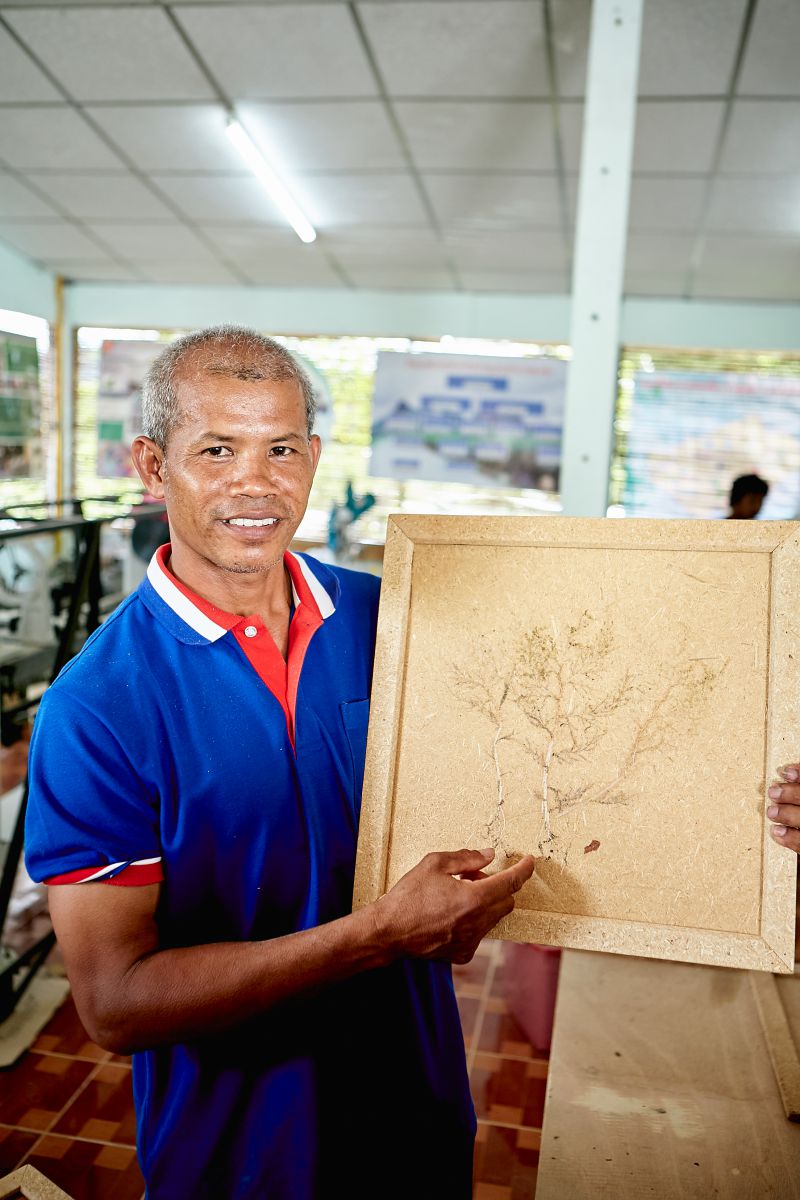
Mr. Tiwa Soodprasert, Assistant Village Headman of Lum Sum sub-district, Sai Yok District, Kanchanaburi province, which uses the community model to incorporate biodiversity preservation while increasing value of the products.
Associate Professor Dr. Rattanawat Chaiyarat, Deputy Dean for Academic Affairs and Student Affairs, Faculty of Environment and Resource Studies, Mahidol University and President of the 13th Power Green Camp said: “A good theoretical and practical understanding of the preservation and usage of biodiversity combined with the experience and knowledge gained from the excursions and adapting artistic and creative skill with scientific knowledge will not only help the students increase value and create products with a difference, but will also increase their effectiveness in managing natural resources in the most beneficial way. This will lead to a sustainable coexistence between man and nature.”
After theoretical and practical learning, students combined the knowledge gained from all the activities in the camp and presented their group projects to the Camp’s Committee and the public at an environmental science exhibition. Topics varied according to each group’s interests. For example, in the “Pon-La-Muk” Project, the students came up with the idea to extract pectin from leftover fruit peels like banana and watermelon to produce a new kind of edible bubble in milk teas which has 21 times fewer calories than the original bubbles. Another interesting project is the “Green Clean” Project, the idea behind which is to increase creative value from different types of biodiversity in each group members’ hometowns, for example True Laurel, Puffball Mushrooms, Snakeskin Gourami, and pineapple, by turning them into healthy products. These ideas align with the currently popular health conscious trend.
This year, the “Tannin Banana Peel” Project won the first prize, a scholarship worth 10,000 Baht. The project is based on the notion of extracting tannin from banana peels to obtain tannin powder, which can then be developed into products for use in wastewater treatment, bleaching and dying, as natural protection against pests and medicine. The idea is consistent with this year’s camp theme as it aims to give value to banana peels and create new products while reducing waste.
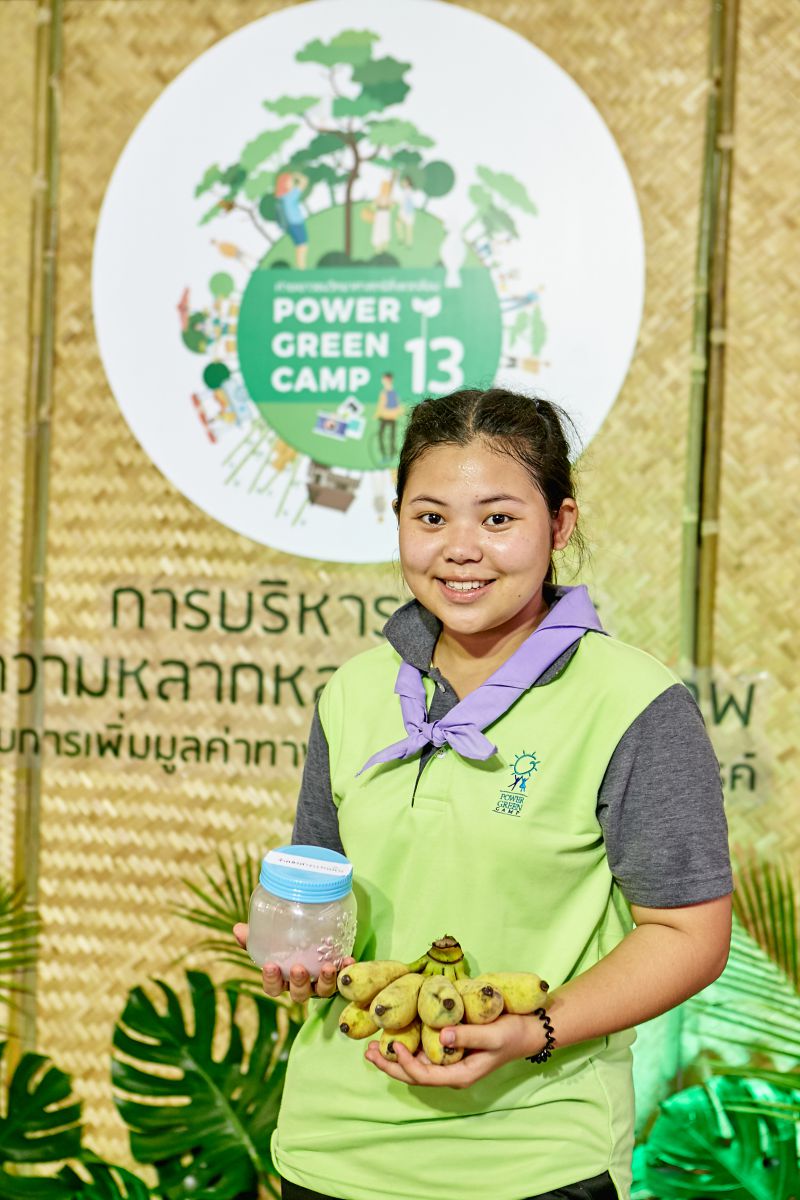
Ms. Wanvisa Phoochuay or Mod, 10th grade student from Khian Sa Pitthayakhom School, Khian Sa District, Suratthani Province, representative of the winning group’s “Tannin Banana Peel” Project.
Ms. Wanvisa Phoochuay or Mod, a 10th grade student from Khian Sa Pitthayakhom School, Khian Sa District, Suratthani Province, a representative of the winning group, spoke of her feelings about the Camp, saying: “I am very glad that I decided to join this year’s Power Green Camp because not only did I have a chance to learn in the classroom and participate in the out-of-class excursions to other provinces, but this camp introduced me to a new way of science by learning from the speakers who explained how to incorporate artistic skill with scientific knowledge in a fun way and integrate this knowledge into daily life. Besides learning, I had an opportunity to make new friends from all over the country who shared my passion for science. I would like to encourage everyone to apply for the next year’s camp because biodiversity preservation is important, and we all need to understand and pay attention to it.”
###
About Power Green Camp
The Power Green Camp was established in 2006 through a collaboration between Banpu Public Company Limited and the Faculty of Environment and Resource Studies, Mahidol University that has as its objective to equip high school students with knowledge about environmental science and the ability to apply it logically in real life, while building strong principles of sustainable environmental preservation. The camp targets high school students in grades 10 and 11 studying in science fields nationwide.
About Banpu Public Company Limited
Banpu is a leading integrated energy solutions company in Asia-Pacific, operating business in coal, power generation, and integrated energy sectors in ten countries; Thailand, Indonesia, China, Australia, Lao PDR, Mongolia, Singapore, Japan, the United States of America and Vietnam.
“Learning is the Power of Change and Development”
Banpu’s CSR activities are based on the firm belief that “learning is the power of change and development” for people and society by emphasizing the promotion and development of continued “learning” among young people and communities in a number of ways. Banpu supports sustainable development of communities and society through a variety of learning opportunities for both individuals and teams, ranging from daily real-life experiences both in- and outside the classroom, to hands-on practice that enhances capabilities and skills.

